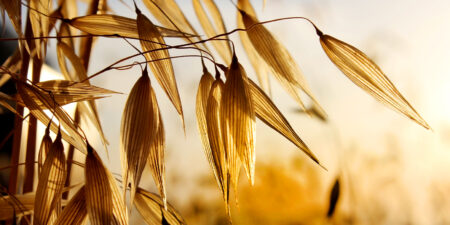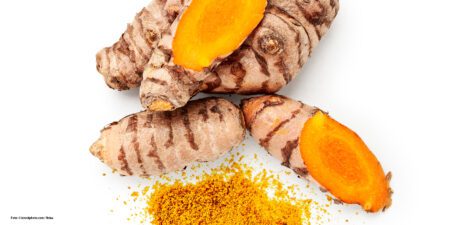Osteoarthritis (OA) is a multifaceted, extremely complicated disease that destroys the physiological integrity of joints. It affects around 18 % of all adults worldwide, with most patients being over the age of 65 years. However, above-average physical exertion seems to accelerate the disease process, which mainly concerns athletes.
A recent SoccHealth study investigating the health of ex-professional soccer players reveals that around half of all female, and two thirds of all male, former professional football players between the ages of 40 and 69 years already suffer from OA. Despite its high prevalence as one of the most common causes of human disability worldwide, no effective treatment has emerged to date. That is why we need to broaden our knowledge of the underlying mechanisms of action of OA in order to find new therapeutic targets that slow down, or halt, the progression of the disease. There is unmistakable evidence that numerous environmental factors induce epigenetic changes promoting the development of the various manifestations of OA. Therefore, research into the role of epigenetics has become a current challenge in order to emphasise its causal relationship and importance in OA at the therapeutic level.
Epigenetics
Epigenetics is the study of the effects that lifestyle choices have on the gene expression of living organisms. In this context, various external environmental factors such as inflammation, inappropriate nutrition, metabolic disorders, oxidative stress, trauma, infections, and ageing lead to changes that can cause DNA methylation or histone modifications, meaning methyl or acetyl groups on the histones. Epigenetic processes therefore determine which genes are read and thus have an impact on the body and which genes are silenced without causing a mutation, i. e. no change is made to the genetic information in the genome. It is now known that the disruption of numerous essential cartilage-specific proteins during the development of OA is caused by aberrant epigenetic regulatory mechanisms and contributes to the development and progression of OA. In addition, currently approved conventional drugs, such as non-steroidal anti-inflammatory drugs (NSAIDs) and corticosteroids, which are commonly used to treat OA, have well-documented and potentially significant side effect profiles with long-term use, including cartilage tissue degradation. This emphasises the possibility of considering new therapeutic targets that may alleviate OA disease.
Phytopharmaceutics as an option
With the promising and growing recognition of inflammation as a major cause of OA, the effectiveness of curcumin (from the plant Curcuma longa), with its exceptionally potent anti-inflammatory and anti-oxidative properties, has emerged in recent years as a remarkable natural agent for the prevention, containment, and treatment of patients with OA. Against the background that curcumin inhibits pain and the degradation of the extracellular matrix (ECM), inflammatory genes and enzymes (nuclear factor kappa B, NF-kB; cyclooxygenase-2, COX-2; matrix metalloproteases, MMPs), and the secretion of inflammatory messengers (cytokines such as TNF-α, IL-1β) in OA, a simultaneous anabolic effect was observed in cartilage tissue (ECM synthesis such as collagen type 2, cartilage-specific proteoglycans), together with the activation of the cartilage-specific transcription factor SOX9 and enhancement of cartilage tissue regeneration. Interestingly, the side effects of this approach do not appear to be significantly different from placebo controls and were generally considered to be low, making this phytopharmaceutical an attractive alternative for patients for whom NSAIDs or cortisone are contraindicated.
Additionally, curcumin can also be of great nutritional benefit to healthy people. As described above, its positive impact on the prevention of various diseases is of decisive advantage, as the internal functions of organs are supported above all by its significant anti-inflammatory and anti-oxidative properties. In daily use, the phytopharmaceutical can also reduce feelings of anxiety, suppress inflammation in the musculoskeletal system after sport, promote performance and regeneration, and help protect human skin from sunlight.
Concluion
Overall, early and regular curcumin supplementation could be of protective benefit to maintain health in view of its comprehensive preventive and regenerative potential, especially for highly stressed competitive athletes, and we suggest that its integration into everyday life should be investigated.
References
- Shakibaei M, T John, G Schulze-Tanzil, I Lehmann, A Mobasheri (2007). Suppression of NF-kB activation by curcumin leads to inhibition of expression of cyclo-oxygenase-2 and matrix metalloproteinase-9 in human articular chondrocytes: Implications for the treatment of osteoarthritis. Biochem Pharmacol, 73: 1434-1445
- Csaki C, A. Mobasheri and Shakibaei M (2009). Synergistic chondroprotective effects of curcumin and resveratrol in human articular chondrocytes: inhibition of IL-1β-induced NF-kB-mediated inflammation and apoptosis. Arthritis Res & Ther. 11: R165.
- Buhrmann C, A. Mobasheri, U. Matis, M. Shakibaei (2010). Curcumin mediated suppression of NF-kB promotes chondrogenic differentiation of mesenchymal stem cells in a high-density co-culture microenvironment. Arthritis Res & Ther, 12: R127
- Henrotin Y, Clutterbuck AL, Allaway D, Lodwig EM, Harris P, Mathy-Hartert M, Shakibaei M, Mobasheri A (2010). Biological actions of curcumin on articular chondrocytes. Osteoarthritis and Cartilage, 18: 141-149.
- Shakibaei M, A. Mobasheri and Buhrmann C (2011). Curcumin synergizes with resveratrol to stimulate the MAPK signaling pathway in human articular chondrocytes in vitro: potential for treating osteoarthritis. Genes & Nutrition. 6: 171-179.
- Buhrmann C, A Brockmueller, A-L Mueller, P Shayan, M Shakibaei (2021). Curcumin Attenuates Environment-Derived Osteoarthritis by Sox9/NF-kB Signaling Axis. Int J Mol Sci. 22: 7645. doi: 10.3390/ijms22147645.
- Cross, M.; Smith, E.; Hoy, D.; Nolte, S.; Ackerman, I.; Fransen, M.; Bridgett, L.; Williams, S.; Guillemin, F.; Hill, C.L.; et al. The global burden of hip and knee osteoarthritis: Estimates from the Global Burden of Disease 2010 study. Ann. Rheum. Dis. 2014, 73, 1323–1330.
- Blanco, F.J.; Rego-Pérez, I. Editorial: Is it time for epigenetics in osteoarthritis? Arthritis Rheumatol. 2014, 66, 2324–2327.
- Panahi Y, Rahimnia A-R, Sharafi M, et al. Curcuminoid treatment for knee osteoarthritis: a randomized double-blind placebo-controlled trial. Phytother Res 2014;28:1625–31.
- Henrotin Y, Malaise M, Wittoek R, et al. Bio-optimized Curcuma longa extract is efficient on knee osteoarthritis pain: a double-blind multicenter randomized placebo controlled three-arm study. Arthritis Res Ther 2019;21:179.
- Kuptniratsaikul V, Thanakhumtorn S, Chinswangwatanakul P, et al. Efficacy and safety of Curcuma domestica extracts in patients with knee osteoarthritis. J Altern Complement Med 2009;15:891–7.
- Kuptniratsaikul V, Dajpratham P, Taechaarpornkul W, et al. Efficacy and safety of Curcuma domestica extracts compared with ibuprofen in patients with knee osteoarthritis: a multicenter study. Clin Interv Aging 2014;9:451–8.
- Srivastava S, Saksena AK, Khattri S, et al. Curcuma longa extract reduces inflammatory and oxidative stress biomarkers in osteoarthritis of knee: a four-month, double- blind, randomized, placebo- controlled trial. Inflammopharmacology 2016;24:377–88
- Sahebkar, A., Serban, M. C., Ursoniu, S. & Banach, M. Effect of curcuminoids on oxidative stress: A systematic review and meta-analysis of randomized controlled trials. Journal of Functional Foods vol. 18 898–909 (2015).
- Fernández-Lázaro, D. et al. Modulation of exercise-induced muscle damage, inflammation, and oxidative markers by curcumin supplementation in a physically active population: A systematic review. Nutrients vol. 12 501 (2020).
- Rahmani, A., Alsahli, M., Aly, S., Khan, M. & Aldebasi, Y. Role of Curcumin in Disease Prevention and Treatment. Advanced Biomedical Research 7, 38 (2018).
- Fuchs J, Scheidt-Nave C, Kuhnert R. 12-month prevalence of osteoporosis in Germany. J Health Monit. 2017 Oct 9;2(3):57-61.
- nako.de/blog/2023/08/23/zur-gesundheit-ehemaliger-fussballprofis-die-untersuchungsphase-der-socchealth-studie-geht-zu-ende/
Autoren
ist Ärztin und hat in der Arbeitsgruppe von Prof. Shakibaei promoviert mit dem Forschungsschwerpunkt der Phytopharmaka-basierten Entzündungsmodulation in Tumorzellen und muskuloskelettalem Gewebe.
war Anatom an der LMU München, ist mit über 35 Jahren wissenschaftlicher Erfahrung einer der weltweit führenden Experten auf dem Gebiet der Grundlagenforschung zur Entzündungsmodulation des muskuloskelettalen Systems und der Tumorbiologie mittels Phytopharmaka.





